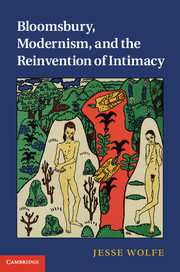Book contents
1 - Yellowy goodness in Bloomsbury's bible
from PART I - PHILOSOPHICAL BACKGROUNDS
Published online by Cambridge University Press: 05 December 2011
Summary
Good is good, and that is the end of the matter.
“Good” is a simple notion, just as “yellow” is a simple notion.
Personal affection and the appreciation of … Art or Nature, are good in themselves.
G. E. Moore's 1903 treatise Principia Ethica has been widely admired, criticized, and mobilized in the century since its publication by readers with a variety of agendas. But none yet has given a full account of its modernist, and therefore quintessentially Bloomsburian, qualities: its anti-essentialist theoretical ideas and its accommodationist social attitudes. Yet it is largely because of these two qualities, and the tensions between them, that Principia continues to provoke readers, and to confuse them in productive ways.
At times in his opening, middle, and final chapters, Moore seems prepared to leap away from Victorian assumptions and inhibitions, into a brave new century. His opening chapter anticipates twentieth-century philosophy's “linguistic turn” by asserting that the predicate “good” and its corollary “bad” constitute the primary subject matter of ethics, a maneuver with far-reaching anti-essentialist potential. His middle four chapters, which explore the divide in nineteenth-century ethics between Kant's categorical imperative and Mill's utilitarianism, develop Moore's anti-essentialist themes even further. Kant represents duty and self-restraint, an implicit check on sexual libertinism, even when sex is not explicitly mentioned, whereas Mill implicitly endorses the pursuit of victimless pleasures.
- Type
- Chapter
- Information
- Bloomsbury, Modernism, and the Reinvention of Intimacy , pp. 31 - 50Publisher: Cambridge University PressPrint publication year: 2011



